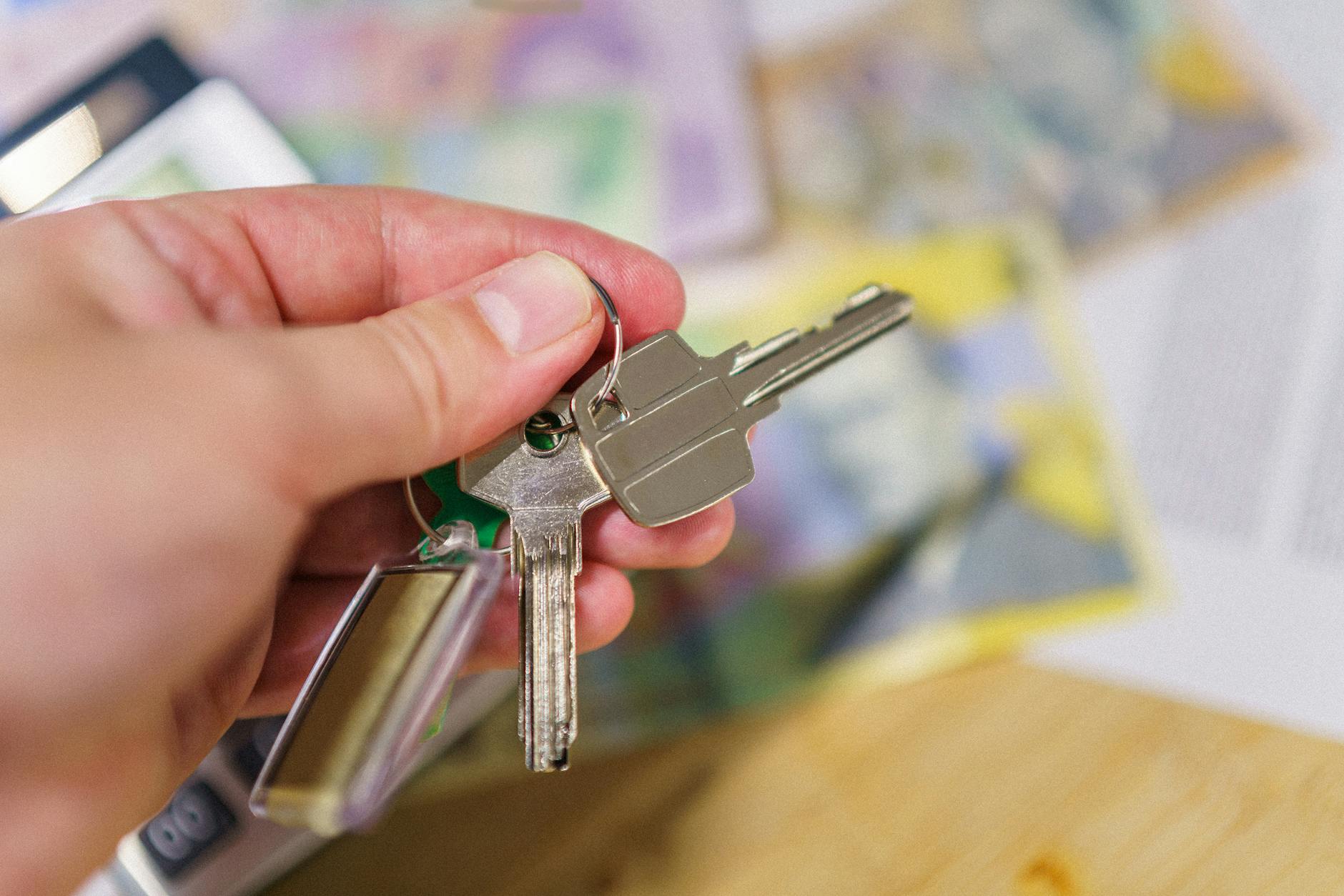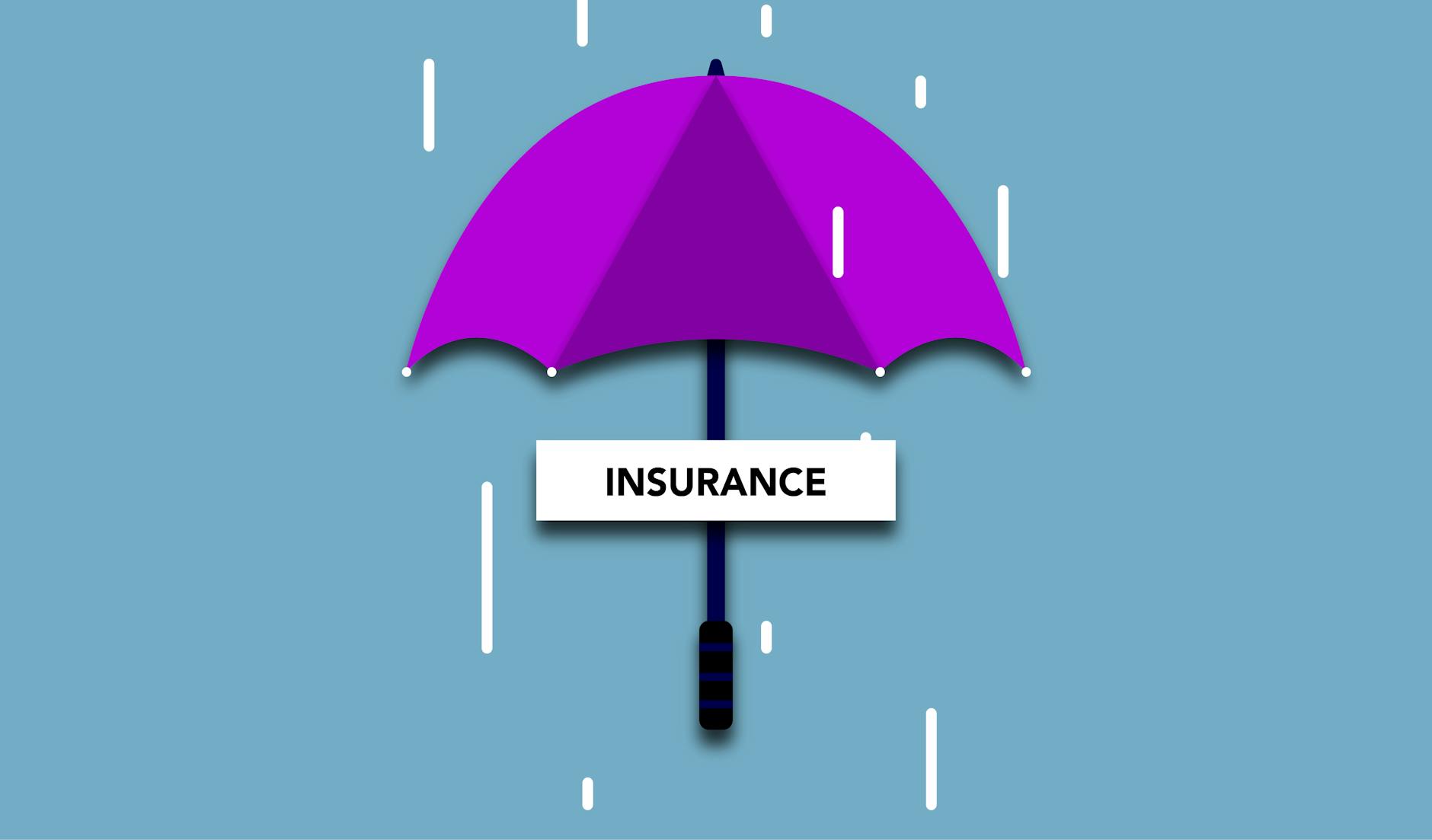Thinking about buying a home and find out there’s a lien attached? That’s a big red flag every buyer should take seriously. A lien is a legal claim on a property, usually because of an unpaid debt like back taxes or contractor bills, and it sticks with the house until it’s paid off.
If there’s a lien on the home you want to buy, you generally can’t move forward with the closing until it’s cleared. Buyers and lenders both want a clear title, meaning no one else has claims on the property. If you skip this step, you might end up responsible for someone else’s debt after closing.
This article explains why liens matter, how they show up during a title search, and what actions you should take if one appears. You’ll learn the basics about different types of liens and key steps to make sure your home purchase is protected.
What Is a Lien and Why Does It Affect Home Buyers?
When you think you’ve found your dream home, finding out it has a lien attached can feel like someone parked a giant “do not enter” sign on the front lawn. Liens are more common than you think, and they matter a lot for buyers. In plain terms, a lien gives someone else a legal right to a piece of the home’s value until a certain debt gets paid. If you try to buy a house with an unresolved lien, you’re walking toward a sticky situation. Let’s break down why liens exist and what makes them so important for home buyers.
What Is a Lien?
A lien is a legal claim against a property. Think of it like a sticky note attached to the house saying, “Pay me first.” Often, the claim is due to an unpaid debt, such as taxes, a contractor’s invoice, or a court judgment. The lien attaches to the home itself, not just the person who owes the money. This means even if the property changes hands, the debt stays with the house until cleared.
Key points about property liens:
- A lien makes a home collateral for a debt.
- Creditors can enforce a lien by foreclosing if the debt remains unpaid.
- Existing liens must be resolved before a property can be legally transferred with a clear title.
Voluntary Liens vs. Involuntary Liens
Not all liens are bad, and not every lien spells trouble. There are two main types you’ll find in real estate:
Voluntary Liens
- The homeowner agrees to these.
- The most common is a mortgage. When you take out a home loan, you give the lender a legal right to your house until it’s paid off.
- Other examples include home equity lines of credit.
Involuntary Liens
- The owner did not choose these. They’re placed on the property because of unpaid debts.
- Common types include:
- Tax liens (for unpaid property or income taxes)
- Judgment liens (result from a lawsuit or court judgment)
- Mechanic’s liens (for unsettled contractor or builder bills)
- HOA liens (for unpaid homeowners association fees)
| Lien Type | Voluntary/Involuntary | Typical Reason | Needs Resolving Before Sale? |
|---|---|---|---|
| Mortgage | Voluntary | Home loan | Yes |
| Tax Lien | Involuntary | Unpaid property/income taxes | Yes |
| Mechanic’s Lien | Involuntary | Unpaid contractor work | Yes |
| Judgment Lien | Involuntary | Lawsuit/court order debt | Yes |
| HOA Lien | Involuntary | Unpaid association dues | Yes |
Why Liens Matter to Home Buyers
Liens are a deal-blocker because they cloud the property title. In real estate, ownership passes cleanly only if the title is clear—meaning no one else has a valid legal claim on the home. If you buy a house and a lien wasn’t dealt with, you might end up responsible for the debt later. This can mean surprise bills, legal headaches, or even risk of losing the house if a major debt is involved.
Here’s what happens:
- During the buying process, your title company or lawyer runs a title search. This pulls up any claims (liens) on the property.
- If a lien is found, the sale usually stops until the debt is paid or settled.
- If you buy a home with a lien by mistake, the lienholder can seek payment from you, sometimes through foreclosure.
In the world of real estate, a lien is like a stop sign for smooth sales. Always check, ask questions, and make sure any liens are cleared so your new home comes with zero surprise baggage.
How Do Liens Show Up During a Home Sale?
A home sale involves more than just a handshake and a signed contract. Behind the scenes, an important detective job takes place to make sure the property is really free from any hidden debts or claims. That’s where the title search comes in—a step that uncovers any legal issues that could delay or even stop the sale. Liens are among the biggest surprises that can turn up during this process, so let’s clear up how they’re found and why they matter to buyers.

Photo by RDNE Stock project
The Title Search: Who Does It and Why
When you buy a home, you want to know you’re actually getting full ownership—no strings attached. That’s where a title search comes in. A title company or sometimes a real estate attorney steps in to review public records connected to the property. The title search digs through county databases, official documents, and court files to build a full picture of who owns the house and if anyone else has claims to it.
Here’s what happens during a typical title search:
- The title company or attorney checks local property records, looking for past and present owners.
- Public documents like tax records, court judgments, and old mortgages are combed for problems.
- They create a report outlining any issues (like liens, easements, or disputes) that could block a clean transfer of ownership.
If a lien pops up in these records, it will show up in the title report that is shared with both buyer and seller.
How Liens Are Found in Public Records
Liens are legal claims filed with the local government and are part of the public record. This means anyone (not just title companies) can technically look up whether a property has a lien, but the title search professionals have the expertise to make sense of what they find.
Common ways liens show up in a title search:
- Tax liens are filed by the county or IRS for unpaid taxes.
- Judgment liens come from court cases where the owner lost and owes money.
- Mechanic’s liens get filed by contractors or workers who didn’t get paid.
- HOA liens are listed by the homeowners association for unpaid dues.
No matter the type, liens are attached to the property itself—not the individual. If a home has a lien, it will be listed in the title report with details on the amount owed and who filed it.
Role of the Title Report and Need for Resolution
After searching, the title company issues a title report, a document detailing everything they’ve found about the property. Think of it as the property’s medical record—clean listings mean no major illnesses, but if a lien is present, it’s a red flag.
Why does the lien need to be cleared?
- Most lenders won’t approve a mortgage if a lien shows up.
- Buyers want “clear title” insurance, which covers them only if the title is clean.
- Unpaid liens can lead to big problems, including legal trouble or losing the property.
Before a sale can move forward, these debts need to be paid off, settled, or otherwise resolved. The closing can’t happen until the lienholder signs a document releasing their claim, which then gets recorded in public records.
Who Makes Sure Liens Get Handled?
- Title companies: They flag any liens in their report and work with agents, sellers, and buyers to get everything resolved before closing.
- Real estate agents: They keep everyone updated and help negotiate terms if an issue pops up.
- Attorneys: In some states or complicated cases, an attorney may handle the whole process or jump in for legal advice.
Resolving liens is at the heart of making sure a buyer gets a home with a clear title—no lingering baggage. That’s why title searches and lien resolution are such a big part of every smart home purchase.
Types of Liens That Can Impact a Home Purchase
When you’re getting serious about a home, finding out there’s a lien means hitting the brakes. Not all liens are the same, though. Each type can block a sale, delay your closing, or jump to the front of the line if the property is sold or foreclosed. Here’s a rundown of the most common liens you might see during a home purchase, how they work, and which ones pack the biggest punch at closing.
Mortgage Liens
A mortgage lien is the most common and usually the biggest lien on any home. When a buyer takes out a loan to buy a house, the lender puts a claim on the property as collateral.
- Voluntary lien: The homeowner agrees to it when signing the mortgage paperwork.
- Priority: The first mortgage usually gets paid before any other private liens if the house is ever sold at foreclosure.
- Closing impact: The mortgage balance must be paid in full for a clean transfer. Most sellers use their sale proceeds to pay off the mortgage at closing.
Tax Liens
Tax liens are the top dog in terms of priority. If a homeowner doesn’t pay property taxes (or in some cases, income taxes), the city, county, or IRS can file a lien against the home.
- Involuntary lien: No homeowner wants this, but it appears when taxes go unpaid.
- Super priority: Tax liens almost always come before all other claims, even mortgages.
- Closing impact: Unpaid tax liens will stop a sale cold. They must be settled for the buyer to get clear title.
Judgment Liens
Judgment liens come from the courts. If someone is sued and loses, the winning party can put a claim on the property for the amount owed.
- Involuntary lien: These arise from court judgments like unpaid debts.
- Priority: Judgment liens are usually behind mortgages and tax liens but can linger for years (sometimes up to 10).
- Closing impact: Judgment liens can delay or block a home sale until they’re paid or released.
Mechanic’s Liens
If contractors, subcontractors, or suppliers work on a home and don’t get paid, they can file a mechanic’s lien.
- Involuntary lien: Contractors use this to secure payment.
- Priority: These can leapfrog ahead of other claims, depending on state law and when the work started.
- Closing impact: Sales freeze until mechanic’s liens get paid in full. These must be resolved for the title to clear, making them impossible to ignore.
HOA Liens
Homeowners Association (HOA) liens come from unpaid dues or fees. In some states, a portion of an HOA lien can even outrank a mortgage (called “super lien” status).
- Involuntary lien: Filed by the HOA for unpaid dues, fines, or assessments.
- Priority: Most HOA liens sit behind mortgages, but states with “super lien” laws push part of the lien ahead of the first mortgage for a limited amount or period.
- Closing impact: Even small HOA liens can derail a sale and, if ignored, may eventually lead to foreclosure.
Which Liens Affect Closing the Most?
Every lien on a house matters, but some shut down a closing faster than others:
- Tax liens, mortgage liens, and “super-priority” HOA liens top the list. These have the legal power to block or delay a sale until cleared.
- Judgment liens and mechanic’s liens must also be resolved, but their position in line (priority) depends on when and how they were recorded.
Here’s a quick table comparing priority and closing impact:
| Lien Type | Voluntary/Involuntary | Typical Priority | Blocks Sale Until Paid? |
|---|---|---|---|
| Mortgage | Voluntary | Behind tax liens | Yes |
| Tax | Involuntary | Highest/super | Yes |
| Judgment | Involuntary | Lower (by date) | Yes |
| Mechanic’s | Involuntary | Varies by state | Yes |
| HOA | Involuntary | Varies; some “super” | Yes |
Knowing what type of lien you’re facing helps you spot bigger problems before they mess up your deal. Each must be addressed before you can get the keys and call a house your own.
What Happens If a Lien Is Found: Your Options as a Buyer
Spotting a lien on your soon-to-be home can mess with your plans, but it doesn’t always mean the deal is over. Once a lien shows up during the title search, you and the seller have some choices to make. How you handle it depends on the type of lien, the seller’s financial situation, and how much risk you’re comfortable taking. Let’s break down your key options and what to expect.

Photo by Jakub Zerdzicki
Typical Steps to Resolve a Lien Before Closing
When a lien pops up, the most common expectation is for the seller to clear the debt before closing. Here’s how that usually works:
- Paying Off the Lien: The seller uses money from the sale or their own funds to pay the debt in full. Once paid, the lienholder files a “release of lien” with the county, so the public record is clear.
- Settlement with the Lienholder: Sometimes, the seller negotiates with the creditor to settle for less than the full amount. The lien gets released after payment, even if it’s not the original balance.
- Payoff at Closing: If the buyer and seller agree, a portion of the sale proceeds can go directly to pay off the lien as part of the closing paperwork (escrow holds funds until the debt is satisfied).
- Release or Satisfaction: After payment, you’ll want to see proof the lien is truly gone, typically in the form of a recorded document from the county.
Most lenders won’t fund your mortgage until the property is free of liens. Your title company will make sure the lien is fully handled before handing over the keys.
What If the Seller Can’t Pay or Negotiate?
Sometimes a seller just doesn’t have the cash to pay off the lien, or they can’t convince the lienholder to settle. Here are the next moves you might consider:
- Deal Falls Apart: If the seller can’t resolve the lien, most contracts let buyers walk away with their earnest money refunded, since “clear title” is a basic requirement.
- Escrow Holdback: Rarely, both sides agree to hold back enough money from the sale in escrow to pay the lien after closing. This only works if everyone, including the creditor, is on board.
- Buyer Steps In: In some unique cases, a buyer might accept responsibility for a small or easy-to-resolve lien and negotiate a lower price as compensation. You’d use the discounted sale price to pay the lien soon after closing.
Should a Buyer Ever Accept a Lien?
Taking on someone else’s lien usually isn’t a good idea, but sometimes buyers make it work—for example, if the property is a great deal or the lien is minor and easy to fix. If you go down this road, protect yourself:
- Get Title Insurance: Owner’s title insurance is your best friend. It covers surprise liens or mistakes in the title search after the sale.
- Deduct the Lien Amount: Knock the lien amount off the purchase price in writing, and have a plan for paying it off immediately at or after closing.
- Work with Pros: Always have a seasoned real estate agent or attorney guide you. They’ll help you avoid mistakes and make sure no hidden claims slip through.
Practical Tips for Buyers Dealing with Liens
Navigating a home purchase with a lien calls for patience, strategy, and a healthy dose of caution. Here’s how buyers can protect themselves:
- Insist on Proof of Payment: Never close until you see proper documentation (like a lien release) filed with the county.
- Use Title Insurance: This coverage protects you from unpaid, undisclosed, or missed liens that pop up later.
- Set Realistic Timeframes: Clearing liens can take days or weeks. Build this into your closing schedule.
- Know When to Walk Away: If the seller drags their feet, refuses to pay, or the lien situation feels risky, don’t be afraid to cancel the deal.
- Stay Informed: Keep open communication between your agent, the title company, and the seller. Surprises are the enemy here.
Summary Table: Your Options if a Lien Is Found
| Option | What It Involves | Recommended? |
|---|---|---|
| Seller pays lien | Debt cleared before closing | Yes, most common |
| Seller negotiates/settles | Seller settles for less with lienholder | Yes, if possible |
| Escrow holdback | Sale closes, funds held to pay lien | Sometimes, if allowed |
| Buyer accepts lien | Buyer pays off after closing, price reduced | Only for special cases |
| Walk away | Cancel deal if lien can’t be cleared | Always an option |
The bottom line: your best bet is to buy a home with a clean title and zero surprise claims. If a lien appears, work with your agent and title company to find the safest path—or step back and protect your wallet.
The Importance of Lien Priority and Title Insurance
Understanding lien priority and the role of title insurance is key when buying a home with a lien on it. These concepts decide who gets paid first if something goes wrong and how you protect yourself from old debts or missed claims that could pop up after closing.

Photo by Monstera Production
How Lien Priority Works
Lien priority is the “who’s first in line” system for debts attached to a property. It decides which debts get paid first if the home is ever sold in foreclosure. The most common rule is “first in time, first in right,” so the earliest recorded lien usually has the highest priority. But there are some powerful exceptions that every home buyer needs to know.
- Tax liens (like property taxes): These almost always jump to the front of the line, even ahead of a mortgage, no matter when they were filed.
- Super-priority HOA liens: In some states, a slice of an HOA claim can leapfrog a mortgage.
- Mechanic’s liens: Sometimes, they take higher priority if work started before the mortgage was recorded.
- Mortgages: Typically first in line after taxes or super liens.
Here’s a simple view of who gets paid first:
| Lien Type | Typical Priority Order |
|---|---|
| Property Tax | First (always paid before others) |
| Super HOA Lien | Sometimes first, varies by state |
| First Mortgage | Behind taxes and some super liens |
| Mechanic’s Lien | Depends on state and work start date |
| Judgment Lien | Lower; in order filed, after above |
| Second Mortgage | Last or near last |
This order matters because only the first-in-line debts get paid in full if foreclosure sale money runs short. Lower-priority lienholders might get nothing and lose their claim.
Why Priority Matters for Buyers
If you buy a home and miss a high-priority lien, you risk losing the property if the debt is not paid. For example, if there’s a hidden property tax lien, the county could foreclose, even if your mortgage payments are up to date. Mortgages and other “junior” liens (anything filed later) will only get paid if there’s enough money left after higher-priority debts.
As a buyer, you want to know exactly where each debt stands so you don’t inherit someone else’s problem, and you always want to avoid being on the losing side of a priority fight.
Key takeaways for buyers:
- Always ask where each lien sits in the priority lineup.
- Never assume a mortgage is “first” without checking local rules about taxes or HOA super liens.
- Understand that some liens, if missed, can wipe out your ownership or your lender’s stake.
The Safety Net: Title Insurance
Title insurance is your backup plan if a lien or claim slips through during the title search. Even with the most careful search, some issues might be missed—old tax debts, unknown heirs, a clerical mistake, or fraud can all hide in public records.
When you buy title insurance, especially an owner’s policy, you get protection from these hidden risks. If an old lien is discovered after you buy, your policy pays for legal defense, settles valid claims, or covers financial loss (up to your coverage amount). Here’s how it helps:
- Covers undiscovered liens: If the title company missed a lien, title insurance steps in.
- Pays for legal expenses: If a third party claims a right to your home, your policy pays for your defense.
- Protects against loss: If you lose part or all of your equity due to a covered title defect, you are compensated.
Important facts about title insurance:
- It’s a one-time cost paid at closing.
- Lender’s insurance protects the bank, not you—buy your own “owner’s” policy for personal protection.
- It doesn’t cover debts or liens you agree to assume, or those placed after your policy starts.
Quick Tips for Home Buyers
Before closing on any home:
- Review the title report for every recorded lien.
- Confirm each lien’s priority—ask your title company or attorney to show you the order.
- Insist on recorded releases for any resolved liens.
- Buy owner’s title insurance for peace of mind.
Buying a house with a clean title isn’t just about feeling safe—it’s about protecting your wallet and your future. Lien priority rules and title insurance together help keep your biggest investment truly yours.
Conclusion
Buying a home with a lien comes with real risks, from extra debt to delayed closings. Missing even a single claim can mean legal trouble or losing money down the road. This is why a solid title search and help from professionals matter so much. Don’t be afraid to ask questions, review all the paperwork, and work closely with your real estate agent, title company, or an attorney.
Smart buyers protect themselves by insisting on a clear title, understanding every lien’s impact, and investing in owner’s title insurance. Trust the process, work with the right team, and you’ll know you’ve done everything possible to protect your future home.
Thanks for reading. If you’ve dealt with a property lien before or have questions about buying a home, drop a comment and join the conversation. Your experience might help someone else facing the same hurdles.

